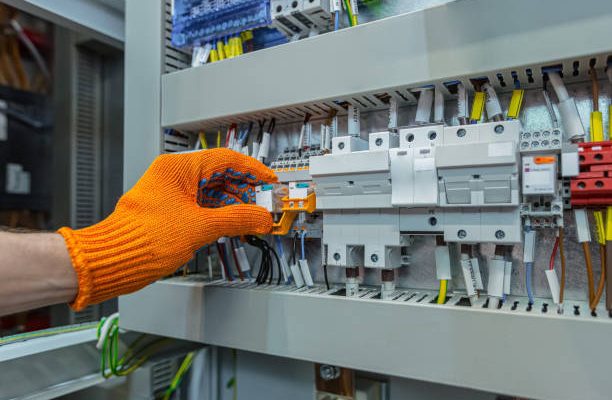Sure, you’re not an electrician. But that doesn’t mean you can’t keep your home’s electrical system operating smoothly and safely. With a little knowledge and some common-sense precautions, you can prevent electrical issues and extend the life of your system. Let’s explore some essential tips you can use to maintain your electrical systems effectively.
Run Regular Inspections
Regular inspections are a core part of maintaining the health of your electrical system. They serve as proactive checks that help identify any potential problems before they escalate into serious issues or safety hazards. For instance, inspections can reveal if circuits are overloaded, if wiring is outdated or frayed, or if there are any loose connections. By catching these problems early, you’re not only ensuring the smooth operation of your system but also preventing costly repairs down the line.

Additionally, regular inspections ensure your home’s electrical system complies with the latest safety standards, giving you peace of mind. It’s important to notice faulty circuit breakers as soon as possible, for example. With regular inspections, you can spot and replace them before they cause any harm. Think of these as ‘health check-ups’ for your home’s electrical system — they might not seem important when everything’s working fine, but they’re crucial in ensuring long-term safety and efficiency.
Check Outlets and Switches
Regularly checking your outlets and switches is another indispensable step in maintaining your home’s electrical system. These components are your primary interface with the system, and their condition can provide important clues about the state of your wiring. For example, if an outlet or switch feels warm to the touch, it can indicate a serious issue like an overloaded circuit or faulty wiring.
Similarly, a switch that doesn’t operate smoothly or outlets that are loose or damaged can signal potential hazards. By monitoring your outlets and switches, you can spot these early signs of trouble and seek professional help before more serious issues develop. This practice not only enhances safety but also prolongs the lifespan of your electrical system.
Apply Safety Measures
There are also various safety measures you can apply in your home in order to ensure proper electrical system maintenance. Here are some tips:
- Install Ground Fault Circuit Interrupters (GFCIs)
- Use Tamper-Resistant Outlets
- Install Surge Protectors
- Avoid Overloading Circuits
- Keep Electrical Cords in Good Condition
- Properly Store and Handle Electrical Cords
- Use Extension Cords Wisely
- Childproof Electrical Outlets
- Keep Flammable Materials Away
- Never Use Water on Electrical Fires
- Schedule Regular Professional Inspections
- Label Your Circuit Breaker or Fuse Box
Safety measures in maintaining an electrical system prevent overloading, overheating, and potential fires, thereby prolonging the system’s lifespan. They ensure the system operates efficiently, and securely and complies with safety regulations, reducing the risk of electrical accidents.
Use the Electrical Appliances Properly
It prevents unnecessary wear and tear on your system and reduces the risk of overloading your circuits. For instance, avoid running too many high-power appliances simultaneously on the same circuit, as this can lead to overheating or circuit tripping. Also, unplugging appliances when not in use not only saves energy but can also prevent potential electrical fires.
Regularly servicing your appliances ensures they are running at their most efficient, reducing the strain on your electrical system. In a nutshell, proper appliance use promotes electrical system longevity, safety, and efficiency.
Do Necessary Upgrades
Just like other aspects of your home, your electrical systems can become outdated over time. Upgrading your electrical components is a key step in maintaining the integrity of your system. These, such as modern wiring replacements or circuit breaker updates, can enhance system safety and efficiency significantly. They can accommodate the demands of modern, high-power appliances, thereby preventing overloads and potential malfunctions.
Moreover, by adhering to the latest safety protocols and technology, these upgrades can drastically reduce the risk of electrical hazards. So, consider investing in necessary upgrades — it’s an essential part of responsible, effective electrical system maintenance.
Implement a Smart System
A smart home system can significantly enhance the maintenance of your electrical system. This technology enables you to monitor and control your electrical appliances remotely, ensuring they operate efficiently and within their capacity. For instance, you can schedule appliances to run during low-demand periods to avoid overloading circuits.
The system can alert you of potential issues, like energy overuse, helping you take immediate action to prevent damage. Moreover, smart systems can track your energy usage patterns, providing valuable insights for optimizing efficiency and reducing costs. So, embracing a smart home system not only improves maintenance but also promotes the longevity and safety of your electrical system.

In conclusion, maintaining your electrical system doesn’t have to be daunting. Regular inspections, meticulous safety measures, appropriate appliance usage, timely upgrades, and implementation of a smart system can all make a significant difference. Remember, a well-maintained electrical system ensures both your safety and the longevity of your home’s overall electrical integrity. You’ve got this!















